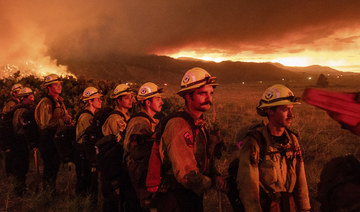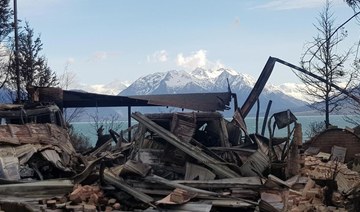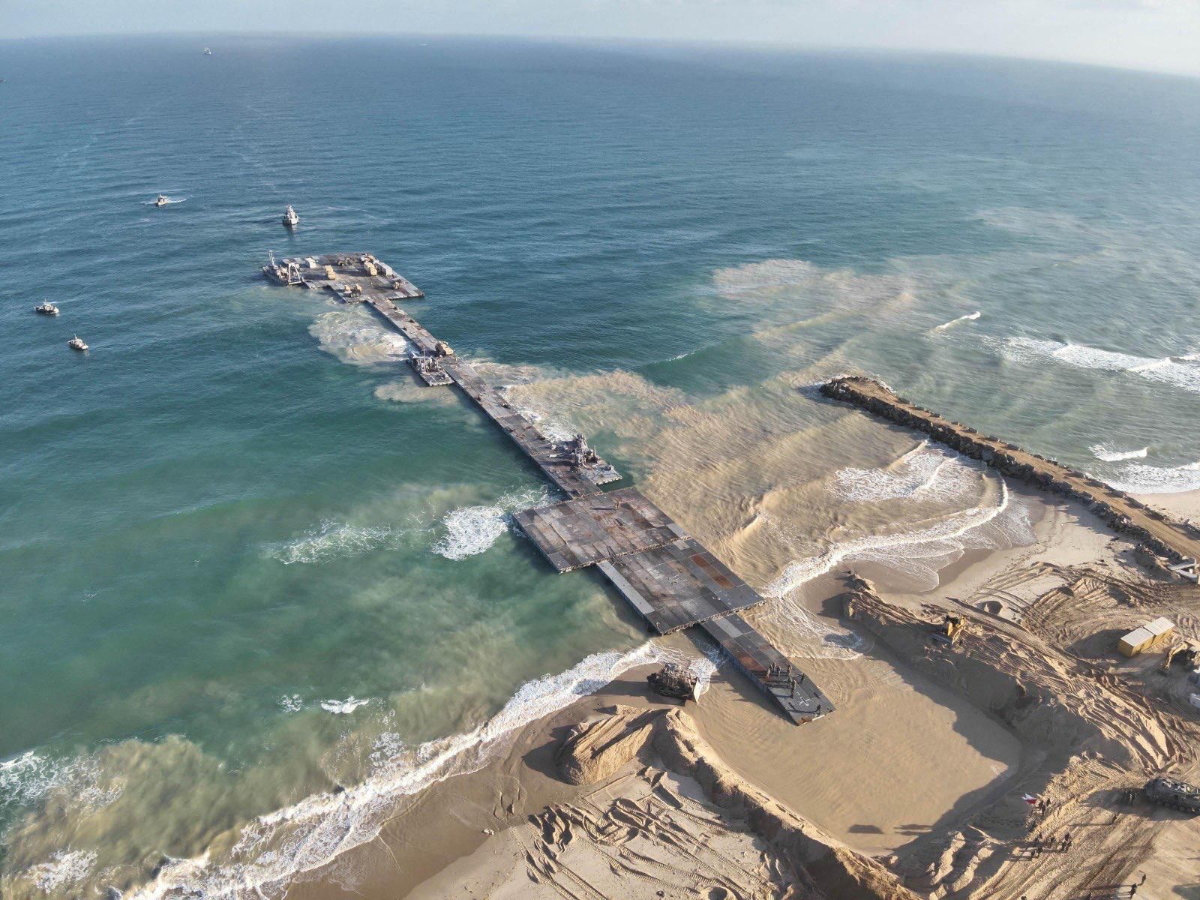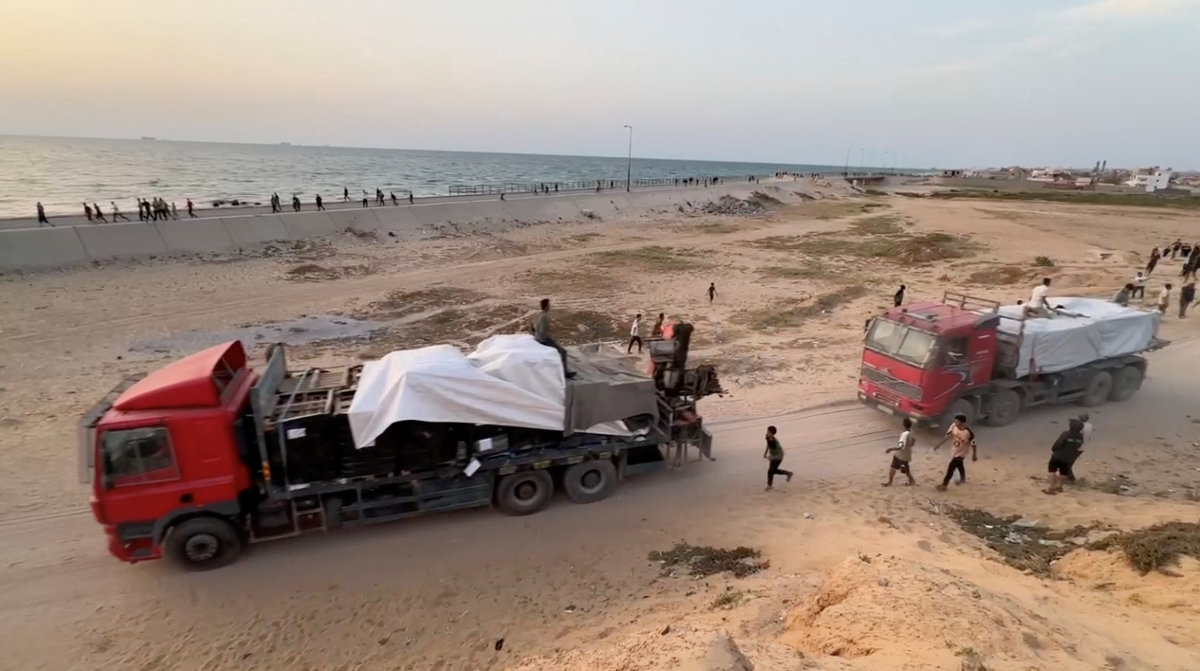ANKARA: The death toll from wildfires on Turkey’s southern coast has risen to four and firefighters were battling blazes for the fourth day on Friday after the evacuation of dozens of villages and some hotels.
More than 70 wildfires have broken out this week in provinces on Turkey’s Aegean and Mediterranean coasts as well as inland areas.
At least four people are reported to have died and dozens have been hospitalized.
Forestry Minister Bekir Pakdemirli said fires raged on in six provinces and officials promised to bring to account anyone found responsible for starting them.
Villages and some hotels have been evacuated in tourist areas and television footage has shown people fleeing across fields as fires closed in on their homes.
Pakdemirli said fires were still blazing in the Mediterranean resort region of Antalya and the Aegean resort province of Mugla.
“We were hoping to contain some of the fires as of this morning but while we say cautiously that they are improving, we still cannot say they are under control,” he said.

Wildfire engulfs a Mediterranean resort region on Turkey's southern coast near the town of Manavgat on July 30, 2021. (AFP)
Although wildfires during summertime are common in Turkey, this year the fires have reached an unprecedented level.
The mayor of the southern resort town of Marmaris blamed “sabotage” for the fires and said an investigation had been launched. A number of buildings and hotels in tourist zones of Marmaris and Bodrum were evacuated after separate fires.
Countries including Azerbaijan, Russia, Ukraine, and Greece have offered emergency help. Three planes, nine drones, 38 helicopters, 680 firefighting vehicles, and more than 4,000 personnel have been deployed to put out the fires.
Turkey has only three planes available to fight forest fires, but all are leased from Russia for 1.3 million liras ($154,350) per day.
Alpay Antmen, a lawmaker from the southern Mersin province and a member of the main opposition Republican Peoples’ Party (CHP), told Arab News: “We have been monitoring the situation on the ground since the beginning. Fortunately, they contained the fire from reaching the settlements. But this tragic case has shown once again the weakness of state apparatus in such emergency situations.”
He, along with other opposition parliamentarians, have been lobbying the Turkish government for a year to upgrade the country’s firefighting capacity.
“Nobody replied to our parliamentary inquiries, and we all witnessed the result of this incapacity. The Turkish president has 13 private planes in his possession, but why couldn’t they buy one single firefighting plane so far?” Antmen said.
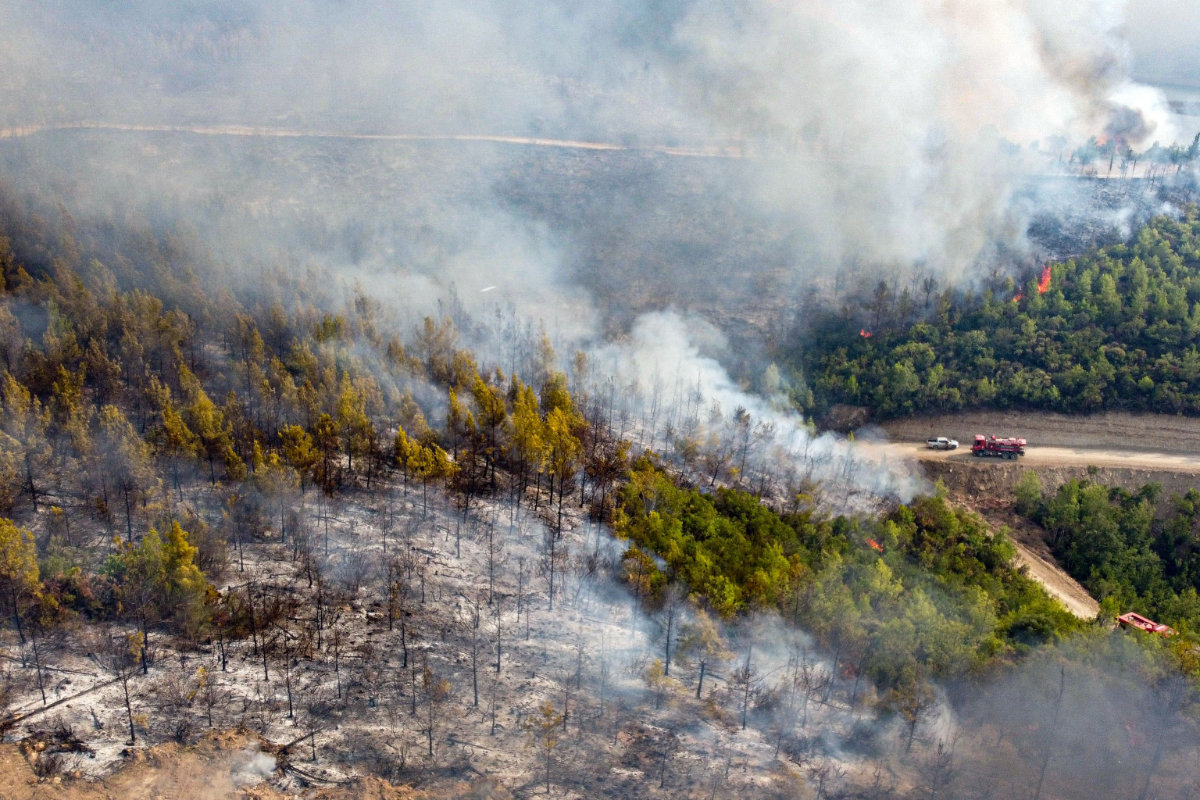
Wildfire engulfs a Mediterranean resort region on Turkey's southern coast near the town of Manavgat on July 30, 2021. (AFP)
Wildfires have broken out elsewhere in the region, with more than 40 in Greece in the last 24 hours, fanned by winds and soaring temperatures, authorities said. On Tuesday, a blaze tore through a pine forest north of Athens, damaging more than a dozen homes before it was brought under control.
Tolga Ozbek, an aviation expert, told Arab News that Turkey had increased its annual water carrying capacity to 148,000 tons this year from 80,000 tons in 2018.
“Fighting wildfires requires an integrated approach, using different types of planes and helicopters based on the geographical conditions. Turkey has been leasing its firefighting helicopters for the last 35 years. This has turned out to be costlier than buying some,” he said.
He pointed out that Turkey needed a permanent fleet of firefighting planes and should allocate a reasonable budget for such emergency situations.
“Whatever you invest in fighting fires, it always falls short because the fires can erupt anywhere anytime. While formulating specific policies in this regard, one should always consider the implications of global warming and the ongoing drought in the country,” Ozbek added.
Fires also burned large swathes of pine forest in the mountainous north of Lebanon this week, killing at least one firefighter and forcing some residents to flee.







